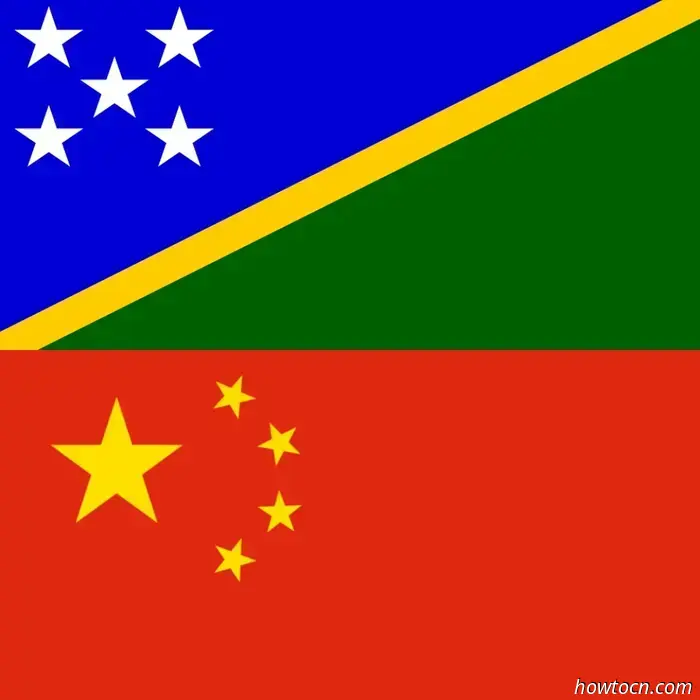
Revelations during the Australian federal election about the Solomon Islands Government nearing the completion of a confidential security agreement with the People's Republic of China (PRC) raised alarms within security sectors. This development led to grim forecasts about the establishment of a future Chinese naval base and the permanent stationing of Chinese troops in the Solomons, posing significant implications for Australia's national security. Some alarmist commentators likened the situation to a new 'Cuba' near Australia's shores, and then Prime Minister Scott Morrison issued serious warnings regarding 'red lines' that ought not to be crossed. Such politically motivated rhetoric detracted from the genuine concerns regarding the wide-ranging potential implications of the agreement.
The leaked draft text of the Framework Agreement between the Government of the People's Republic of China and the Government of Solomon Islands on Security Cooperation (referred to as the Security Agreement) — which knowledgeable sources claim closely resembles the finalized version — merely outlines the mechanisms by which Chinese security forces (military, armed police, or police) could be dispatched to the Solomon Islands. It does not address aspects such as cooperation, training, equipment provision, exchanges, or other forms of collaboration, which are instead covered in a separate 2019 accord.
This situation is not, in principle, unusual. Australia possesses an Agreement Concerning the Basis for Deployment of Police, Armed Forces, and other Personnel to the Solomon Islands, signed on August 14, 2017. While the agreement with China permits a much wider scope of Chinese deployments, it is sparse in details — just over four pages long, in contrast to more than twelve pages in the Australian agreement. The Australian agreement clearly delineates formal procedures for initiating and terminating deployments from the Solomon Islands, as well as command and control protocols, legal frameworks, and authorities, all aimed at maintaining the Solomon Islands' sovereign control over any deployments. By contrast, the agreement with China lacks such specifics or safeguards.
The broad potential applications of the agreement with China are particularly troubling. Article 1 outlines the Scope of Cooperation in two distinct segments.
**Solomons-initiated Chinese Deployments**
The first portion of Article 1 allows the Solomon Islands Government to request, for 'its own needs', Chinese assistance, which could involve sending police, armed police, military personnel, and other law enforcement forces to the Solomons ‘to assist in maintaining social order, protecting peoples’ lives and property, providing humanitarian assistance, carrying out disaster response, or assisting with other tasks agreed upon by the parties.’ The phrase ‘maintaining social order’ carries a much broader implication in China, and the provision for 'other tasks agreed upon by the parties' opens a wide realm of possibilities.
The most evident application of these provisions would arise during civil unrest or substantial law enforcement breakdowns, akin to the riots of November 2021. These are situations the Solomons typically rely on Australia to help with, supported by other Pacific nations. Therefore, why did the Solomon Islands Government seek assistance elsewhere? Likely, China offered this help, referencing the targeting of ethnic Chinese businesses during the 2021 riots and expressing its understandable desire to protect fellow Chinese.
Yet, there are scenarios where Australia might hesitate to send troops. For instance, if the Solomons were to face a constitutional crisis with a government attempting to cling to power unlawfully or a largely peaceful uprising, Australia might have reservations about intervening forcefully to ‘restore order,’ which China might not share. While not suggesting this factor influenced the Sogavare Government's decision, the Agreement could facilitate a shift toward more authoritarian governance.
**China-initiated Chinese Deployments**
The second part of the Scope of Cooperation in Article 1 permits China, ‘according to its own needs’, to conduct ship visits, stopovers, or transits, carry out logistical replenishments, and deploy Chinese forces ‘to protect the safety of Chinese personnel and major projects in Solomon Islands.’ There are no comparable clauses within the Australian agreement. It is quite uncommon, if not an infringement on sovereignty, for a pact of this nature to allow a nation to engage in military or security activities in another as they see fit.
Attention has primarily been drawn to the provision regarding ship visits, but the section permitting Chinese forces to ‘protect the safety of Chinese personnel and major projects in Solomon Islands’ is equally concerning. As China rolls out an increasing number of projects under the Belt and Road Initiative (BRI), the opportunity to activate this clause to deploy Chinese security forces for investment protection rises. The Agreement might enable China to station security personnel in the Solomon Islands indefinitely to safeguard any projects it is undertaking. In northern Laos and Myanmar, the BRI has resulted in the establishment of Special Economic Zones that appear to exhibit a form of extraterritoriality, with China governing all aspects of these zones, including security.
Notably, the Agreement lacks details regarding processes or limitations on deployments initiated by China — only a vague expectation for ‘consent’. This stands in

As the Chinese New Year nears, it's time to refresh your polite expressions before you get hit with baijiu and fireworks.

To celebrate the Lunar New Year, we reached out to influential figures in the capital to find out how they would spend 24 hours in Beijing.
-for-the-CNY-Holiday-2025.png)
If you intend to be in Beijing during Spring Festival, you might be curious about which places will be open during the holiday.

The year 2021 witnessed a series of notable celebrity cancellations, such as actor Zhang Zhehan, known for the popular danmei 耽美 (Boys' Love) series Word of Honor, pop star Kris Wu 吴亦凡 who was detained on allegations of rape, and actress Zheng Shuang 郑爽 who faced penalties for tax evasion. The emergence of this heightened culture of celebrity cancellations in China is not solely driven by authentic social sentiments or the tightening control of the Party-State; instead, it is fueled by an increasingly competitive industry with monopolistic influence that spans social media platforms, streaming and video-sharing services, along with state-run media.

Here’s an overview of how the Lunar New Year is celebrated in other countries.

Beginning at the Great Wall and concluding with a nightcap at a bar with views of the Forbidden City, Preston Thomas' 24 hours in Beijing are filled with a diverse range of experiences.
The Security Agreement between China and the Solomon Islands has led to dire forecasts about a possible Chinese naval base and a continuous presence of Chinese troops in the Solomons, which poses significant implications for Australia's national security. There were alarmist claims that the Solomon Islands were turning into another ‘Cuba’ near our shore, prompting then-Prime Minister Scott Morrison to issue foreboding warnings about certain ‘red lines’ that must be respected. This politically motivated discourse diverted focus from the genuine concerns regarding the wide-ranging potential implications of the agreement.